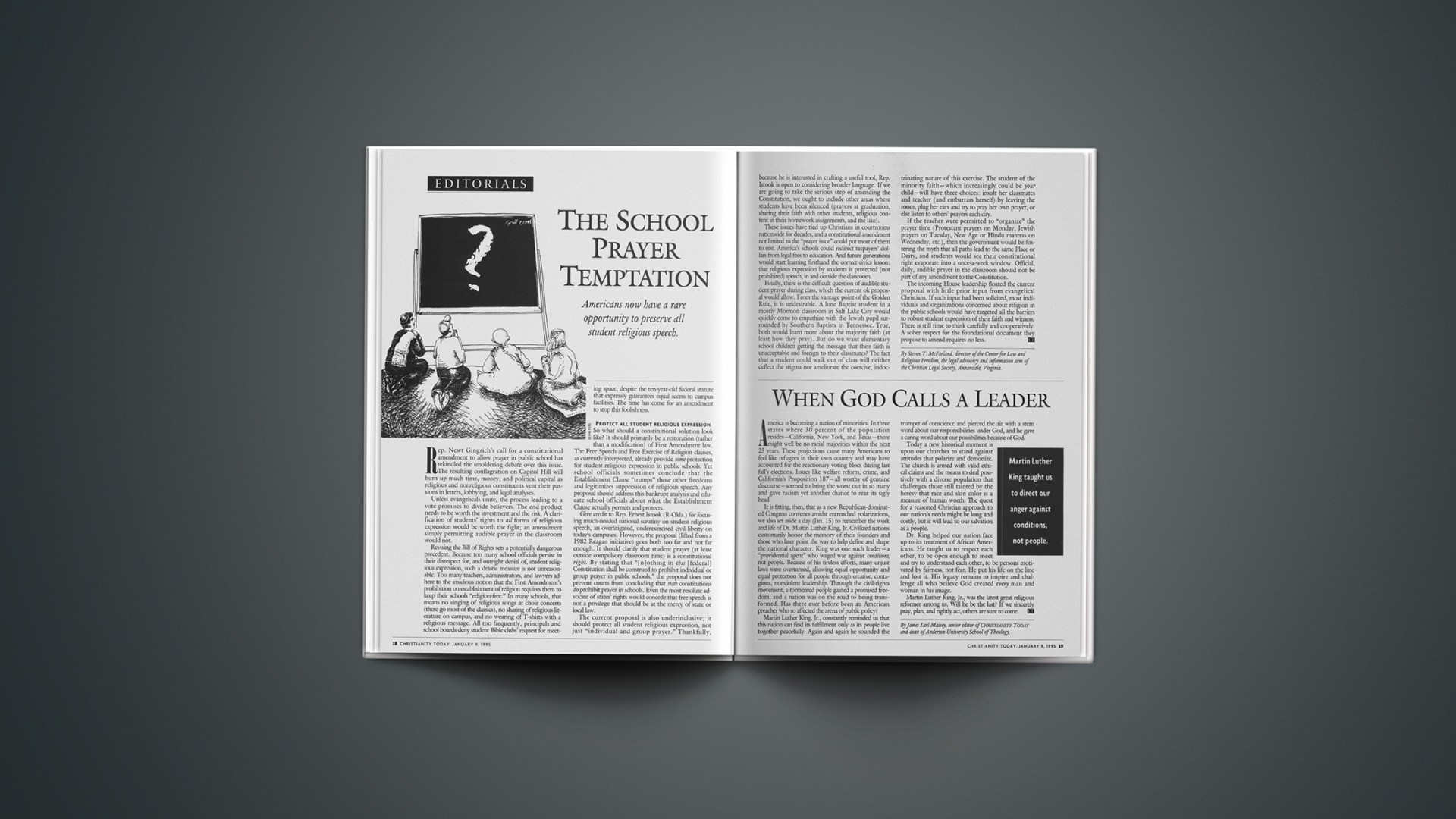America is becoming a nation of minorities. In three states where 30 percent of the population resides—California, New York, and Texas—there might well be no racial majorities within the next 25 years. These projections cause many Americans to feel like refugees in their own country and may have accounted for the reactionary voting blocs during last fall's elections. Issues like welfare reform, crime, and California's Proposition 187—all worthy of genuine discourse—seemed to bring the worst out in so many and gave racism yet another chance to rear its ugly head.
It is fitting, then, that as a new Republican-dominated Congress convenes amidst entrenched polarizations, we also set aside a day (Jan. 15) to remember the work and life of Dr. Martin Luther King, Jr. Civilized nations customarily honor the memory of their founders and those who later point the way to help define and shape the national character. King was one such leader—a "providential agent" who waged war against conditions, not people. Because of his tireless efforts, many unjust laws were overturned, allowing equal opportunity and equal protection for all people through creative, contagious, nonviolent leadership. Through the civil-rights movement, a tormented people gained a promised freedom, and a nation was on the road to being transformed. Has there ever before been an American preacher who so affected the arena of public policy?
Martin Luther King, Jr., constantly reminded us that this nation can find its fulfillment only as its people live together peacefully. Again and again he sounded the trumpet of conscience and pierced the air with a stern word about our responsibilities under God, and he gave a caring word about our possibilities because of God.
Today a new historical moment is upon our churches to stand against attitudes that polarize and demonize. The church is armed with valid ethical claims and the means to deal positively with a diverse population that challenges those still tainted by the heresy that race and skin color is a measure of human worth. The quest for a reasoned Christian approach to our nation's needs might be long and costly, but it will lead to our salvation as a people.
Dr. King helped our nation face up to its treatment of African Americans. He taught us to respect each other, to be open enough to meet and try to understand each other, to be persons motivated by fairness, not fear. He put his life on the line and lost it. His legacy remains to inspire and challenge all who believe God created every man and woman in his image.
Martin Luther King, Jr., was the latest great religious reformer among us. Will he be the last? If we sincerely pray, plan, and rightly act, others are sure to come.
********************
James Earl Massey is senior editor of CHRISTIANITY TODAYand dean of Anderson University School of Theology.
Copyright (c) 1995 CHRISTIANITY TODAY, Inc./CHRISTIANITY TODAYMagazine










